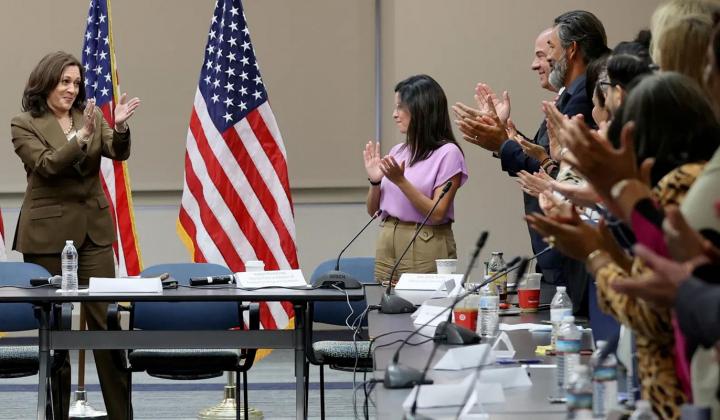OPINION: Another false narrative on election reforms in Texas
Being more familiar with Texas’s election laws than the average person, I’ve become accustomed to watching as the narrative on proposed reforms diverges wildly from the facts on the ground.
Such was the case when local media made preposterous claims about the Texas legislature’s elimination of “rolling voting” in 2019.
Then there were the demonstrably false claims that Governor Abbott had engaged in voter-suppression tactics during the November 2020 election.
Today, the topic is the election-integrity reform that was filed in the first called session of the 87th Texas legislature.
As Texas Democrats, after having bolted from the state capital, stand in Washington, D.C., singing “We Shall Overcome” on the steps the of the United States Capitol, it is worth asking:
“What is actually in, as Vox calls it, the GOP voting bill that literally caused Texas Democrats to flee the state?”
The bill restores the rule of law in elections.
It prohibits many of the well-meaning, but not sustainable, efforts by local officials in Harris County to make pandemic voting easier, including sending unsolicited mail-in ballot applications, implementing drive-through voting, offering 24-hour voting, or simply changing procedures beyond what is authorized in the Texas Election Code.
Opponents refer to this rollback as “voter suppression,” but what they don’t tell you is that these practices, while not expressly illegal, were never clearly legal in the first place – and certainly had never been done before.
From the perspective of voters in Texas, these provisions change nothing.
With respect to voting by mail, the bill requires ballot applicants to include their driver’s-license number, the last four digits of their social-security number, or sign a statement declaring that they do not have those items.
This is simply an extension of in-person voter-ID requirements.
People who oppose voter ID will oppose it for mail-in voting, but they are out of step with nearly 80 percent of Americans who support such measures. Even Stacey Abrams no longer objects to voter ID.
The bill expands voting access in several key respects.
First, it amends the election code to increase the hours that polling locations are required to stay open (i.e., polls required to operate for “eight” hours will have to be open for “nine”).
It expressly states that if a person is in line when polls close, that person shall be allowed to vote.
The bill even expands a current law prohibiting employers from discriminating against a person for attending the polls on election day to cover voting at any time during the early-voting period.
No honest person would look at these changes and see voter suppression.
Current law authorizes a person to provide “assistance” to a voter in a variety of circumstances. The bill expands those to include voters who have difficulty “reading” the ballot.
The bill requires the person providing assistance to declare that he is not working for a candidate, campaign, or political committee, that he did not coerce the voter, and that he will keep the per-son’s ballot confidential. These are voter protections.
The bill criminalizes vote harvesting, preventing a voter from casting a legal ballot, causing a voter to cast an illegal ballot, voting both in Texas and in another state, and altering a ballot to not reflect a voter’s will.
It protects the activities of poll watchers, but also requires watchers to swear under oath that they “will not disrupt the voting process or harass voters in the dis-charge of my duties.” It authorizes election judges to remove watchers who breach the peace or violate the law in any way.
At least a half-dozen key provisions in the bill were standalone bills authored by Democrats in the previous legislative session.
For example, the bill makes it much easier to fix an incorrect voter registration online (H.B. 3122, Turner of Dallas).
It also includes provisions to make it easier to cure defects in mail-in ballots and on carrier envelopes for mail-in ballots (H.B. 3525, Bucy).
Notably, the bill also expands eligibility for countywide voting in all counties in Texas. That means a voter can vote at any polling location in the county during an election, rather than being restricted to his precinct (H.B. 661, Beckley).
This is a significant expansion of a process that makes voting much easier.
While opponents and an unquestioning media agreed on a narrative long before the bill was filed, the truth of the matter is that the current election-integrity bill in Texas is benign. To be sure, there are provisions that inspire typical ideological and political debate, but the main focus of the bill – the measures that directly affect voters – will actually make voting easier and more accessible.
No amount of political theater will change that. To call this bill “Jim Crow 2.0” or to assert that it is the greatest threat to democracy since the Civil War, as President Biden recently said of such bills, is an unserious position that should be ignored.
Russell H. Withers is the general counsel and the director of policy at the Texas Conservative Coalition Research Institute, a public-policy think tank based in Austin, Texas.

